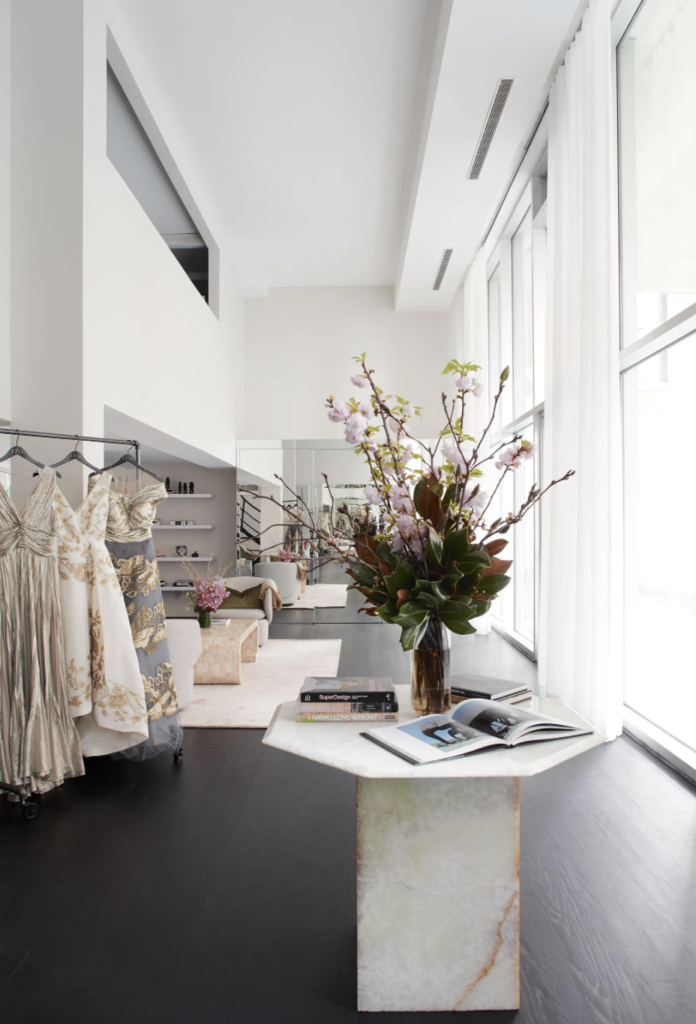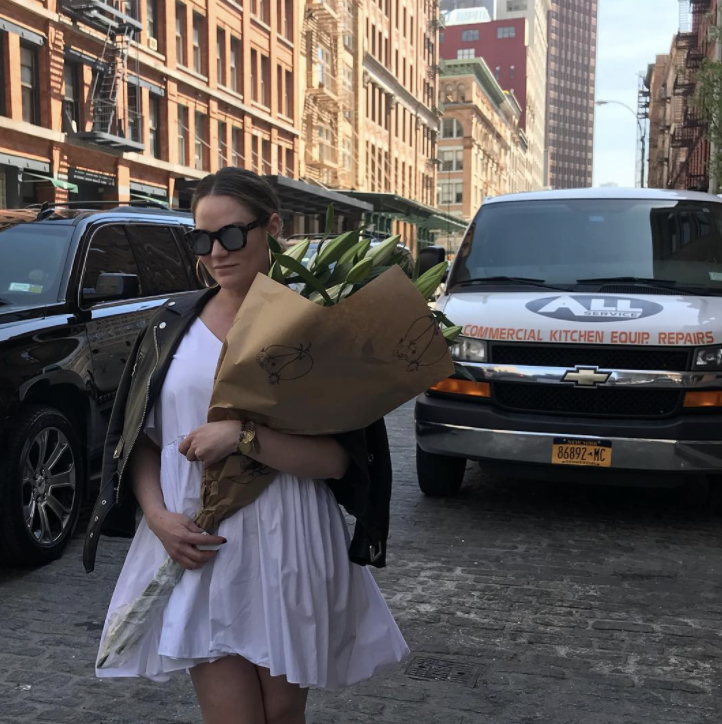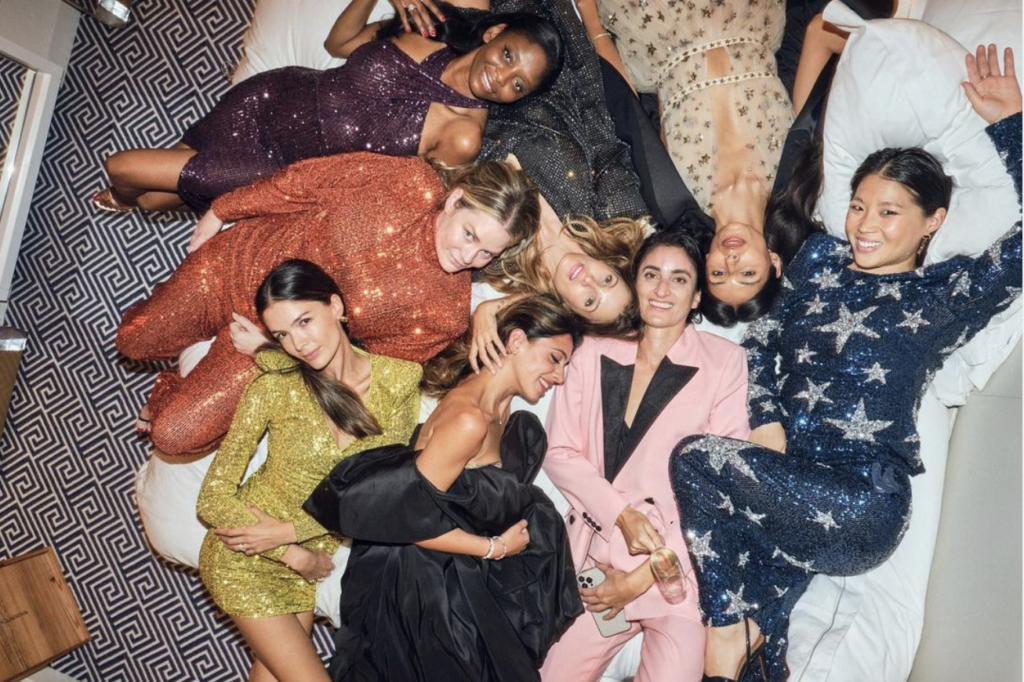Welcome back to #UnderTheInfluence – our behind-the-scenes interview series where we chat with the brand founders, team leaders, and tastemakers of today about how they influence in a social-first world.

Today we had the pleasure of chatting with Silje Lübbe – brand founder and CEO of Nova Octo, an ethical evening wear rental brand that you may have seen on your favorite stars, its flagship boutique in Tribeca, or perhaps even in your own closet.
We talk about everything from Silje’s start in the fashion industry in Europe, to how she identified the white space in style sustainability – and most importantly, her vision for creating a positive impact in the fashion community that lasts even longer than your favorite satin slip. Check out the full story below.
Tell us about you – where you started, and the basis of how you founded Nova Octo!
I’m from Norway, born and raised. I left around 15 and was living in Denmark, and then studied journalism in London. After graduation, I started working at Armani – first on the PR side, and then by accident, in fashion merchandising. I got involved in the buying side, and I loved it. I went to Dubai from there and worked at Boutique One, which at the time was one of the largest multi-brand retailers there, and then went on to launch Harvey Nichols. That’s where my passion developed from contemporary buying to evening wear, which was huge there. People get invited to weddings through a friend of a friend, and dress like they’re going to the Oscars. It’s incredible.
I realized throughout working in the industry that there was something missing in the fashion space – and I was just bored by it, to be honest. I started having issues with the waste around it all, products that were left over. I would walk into stock rooms and there would be beautiful gowns that would never get put on the floor because they were too similar to something else out there, and so they would just sit in the back. A warehouse of evening wear. From a merchandising perspective, it was wild because the time window we had to sell these gowns were forced into the same retail calendar as regular clothes. People don’t buy evening wear at the same rates as jeans and t-shirts, and I thought “I wish there was something I could do with all of these pieces. I want to rent them” And that’s really how the idea of Nova Octo started.
When you saw that there was definitely an opportunity here – was there a real brand ethos that you started with, or did you launch fast and let the brand evolve over time?
The brand has evolved, but it truly hasn’t changed too much. I’m very focused on sustainability myself, so when we first launched that was priority. But now the more educated I am, I don’t always feel rental is sustainable – but I know my business is. And I also know what it takes to make that happen. Sustainability was the #1 thing, and still is.

My message is always don’t buy a lot – buy what you love, and that you’re going to wear forever. The most sustainable thing you can ever wear, is what is in your wardrobe already.
Sustainability is so much more than what an item is made of or how it’s produced; it’s about, who made that product, how did it come here, what is the life of the people that are making it? I think there’s a lot of green washing going on. When major fast fashion retailers produce these “sustainable lines” it really infuriates me, because that’s just pure PR. It’s branding – and the problem still exists.
Do you see a difference between the European consumer and the American consumer in sustainable purchase behavior?
Yes – even growing up in Norway, sustainability was always a big part of our lifestyle – not being wasteful is a part of the culture. The education around sustainability for me began when I was a child. Excess wasn’t ‘cool’.
How does the consumer buy consciously in terms of sustainability from your point of view? The girl that wants to be responsible, but also loves fashion and new styles.
It’s actually almost impossible for a consumer to do this. I honestly think a lot of the responsibility falls on corporations and lawmakers to put policies in place, and provide accountability. As a consumer, it’s hard to figure it out on your own. Think about recycling – that ship has sailed, and it’s still a conversation in American culture. It’s not about recycling anymore, it should be about reducing at this point. It’s about economics, and minimum wage, and how it should cost more to produce more. Of course, I believe fashion should be accessible to everyone, but I also feel we have to obsess over slow fashion, not trends.
What responsibility do you think the fashion industry has in this?
I think using sustainability as a form of branding and to make more money is awful – that has to stop. It’s false advertisement, and there should be laws around it.
What do you do as a brand to educate your consumers on sustainability?
Our consumers are very conscious about this. Our clients tend to be very well educated, and have access to the information required and the critical thinking, the ability to expose themselves to these ideas. I also think as a society, the concept of being excessive has shifted. It’s become tacky to spend money on something you’re only going to wear once. If you think about it, you wouldn’t buy a car or a house to go away for a weekend, you would rent. Our clients do that with our clothes.

What is your relationship with talking about sustainability with your customer?
We educate our client a lot on not having this one-wear guilt. We spend a lot of time and resources to maintain our pieces so that they last. We don’t do an end-of-season sample sale; our collections are intentionally season-less. It’s the one category where a good dress, is really a good dress.
It feels like your mantra personally and professionally, is that consumption is the opposite of being sustainable.
You have to be conscious about how you spend. I am more about ethical fashion than I am about sustainable fashion because ethical fashion usually ends up being sustainable. You can be sustainable and not pay factory workers a fair salary. If you pay someone the proper price, it might be more expensive by the time it reaches the consumer, but it should last someone a long time, and have quality.
What is your wish for increased education around ethical fashion as an industry?
So much of sustainability is really about social issues. It’s about you, in your home – every single person should reduce. But if you’re going to spend, invest. Whatever you buy that you don’t throw out is the best way to practice sustainability. People want to wear different things sometimes, and that’s wear renting becomes sustainable. If you’re stopping 10-20 other people by purchasing an item 10-20 times through renting, that’s sustainable. I don’t think there are enough studies on the process, and seeing what’s worth it in the fashion industry. At Nova Octo, we make sure we do our part, and the best thing we can do is be a responsible company, and give our consumer something they really love.
Let’s Talk